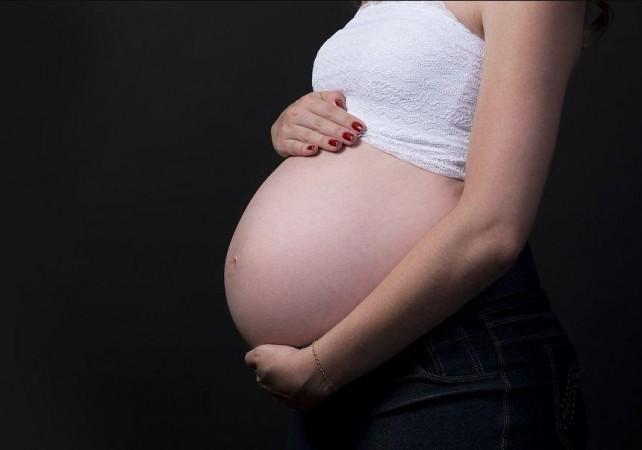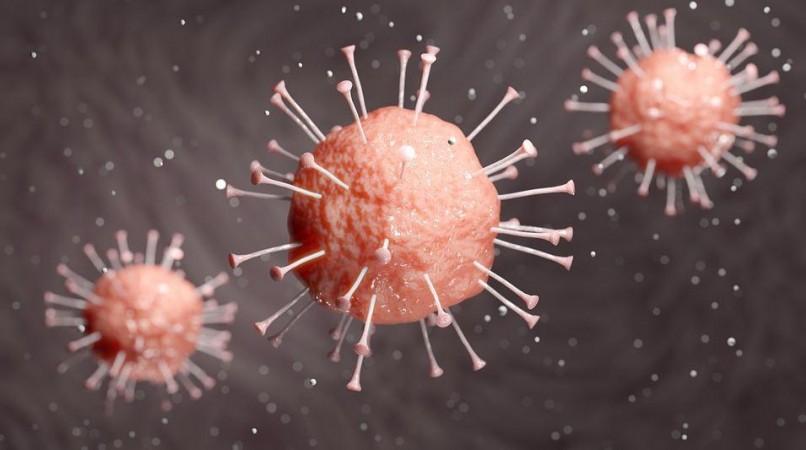The effect of mothers' COVID-19 infection status on their health and that of their unborn fetuses has been receiving increased attention over the past few months. Being a high-risk group, there is has also been a call for ensuring their inoculation against the SARS-CoV-2 virus. Adding weight to the assertion, a study has stated that there is an increased risk of poorer outcomes for the new-borns and symptomatic women with COVID-19
According to the new study, in women in the third trimester of their pregnancy, close to their delivery (parturients), researchers found "significant differences" in symptomatic COVID-positive patients. This included lower white blood cell counts, higher rates of gestational diabetes, and heavier bleeding during delivery, while respiratory complications were noted in their newborns.
"Our findings support the importance of vaccinating all pregnant women at all stages of pregnancy," said Dr. Elior Eliasi, lead author of the study, in a statement. The findings were published in The Journal of Maternal-Fetal & Neonatal Medicine.
Examining Infected and Uninfected Mothers

For the retrospective study, the team assessed 2,471 women in the third trimester of their pregnancy admitted to the hospital (Mayanei Hayeshua Medical Center, Israel) for delivery between 26 March and 30 September 2020. Of these, 2299 (93 percent) parturients were COVID-negative while 172 (7 percent) tested positive for the SARS-CoV-2 virus.
Among the women found to have COVID-19, 56 (33 percent) were symptomatic. Thus, the expecting mothers were divided into three groups: COVID-negative; COVID-positive and symptomatic; and COVID-positive and asymptomatic.
The COVID-positive parturients were monitored around the clock. Cough (28/56 or 50 percent) was the most common symptom in symptomatic women. Malaise, gastrointestinal symptoms, and/or anosmia and loss of taste were some /of the other symptoms observed in a few infected mothers. Also, gestational diabetes mellitus was significantly less common in COVID-19-negative mothers than in COVID-19-positive patients.

"Our analysis finds there were no significant increase in cesarean delivery in women, who were COVID-19 positive and the incidence of preterm deliveries was not significantly different among the three groups (healthy, covid positive asymptomatic, covid positive symptomatic). Most pregnancy and delivery outcomes were similar between COVID-19-positive and -negative parturients (a woman about to give birth; in labour)," stated Dr. Eliasi.
Significant Differences
Nevertheless, the difference between the first group composed of healthy mothers and the other two consisting of COVID-positive mothers was considerable. "There were significant differences between the COVID-19-positive and healthy controls included higher rates of GDM (gestational diabetes), low lymphocyte counts (white blood cell count) which were significantly lower, postpartum hemorrhage (bleeding during birth), and neonatal respiratory complications," explained Dr. Eliasi.
On average, the increase in the risk of incidence of adverse outcomes was 13.8 percent higher among asymptomatic COVID-positive parturients. It was found to be19.6 percent higher for those who were symptomatic. However, only one mother with COVID-19 required mechanical ventilation, and there were no maternal deaths. Despite this, Dr. Eliasi emphasized that the study "has clinical implications, albeit at lower rates than expected once asymptomatic patients are taken into account."

Nevertheless, the authors admitted that the study is not without its limitations and their findings "may not be generalizable to all populations." The main drawbacks being the retrospective nature of the research and the sample's inclusion of a relatively healthy population admitted to only one community hospital.
"More data is now needed to better delineate the differences between pregnancy outcomes seen in certain populations, potentially related to different viral characteristics (subtypes, viral load), patient epigenetics, or other factors," wrote the authors. Also, the effects of the mother's infection on the fetus—in terms of symptomatic illness of the mother and vertical viral transmission to the child—requires further exploration, the team highlighted.

















